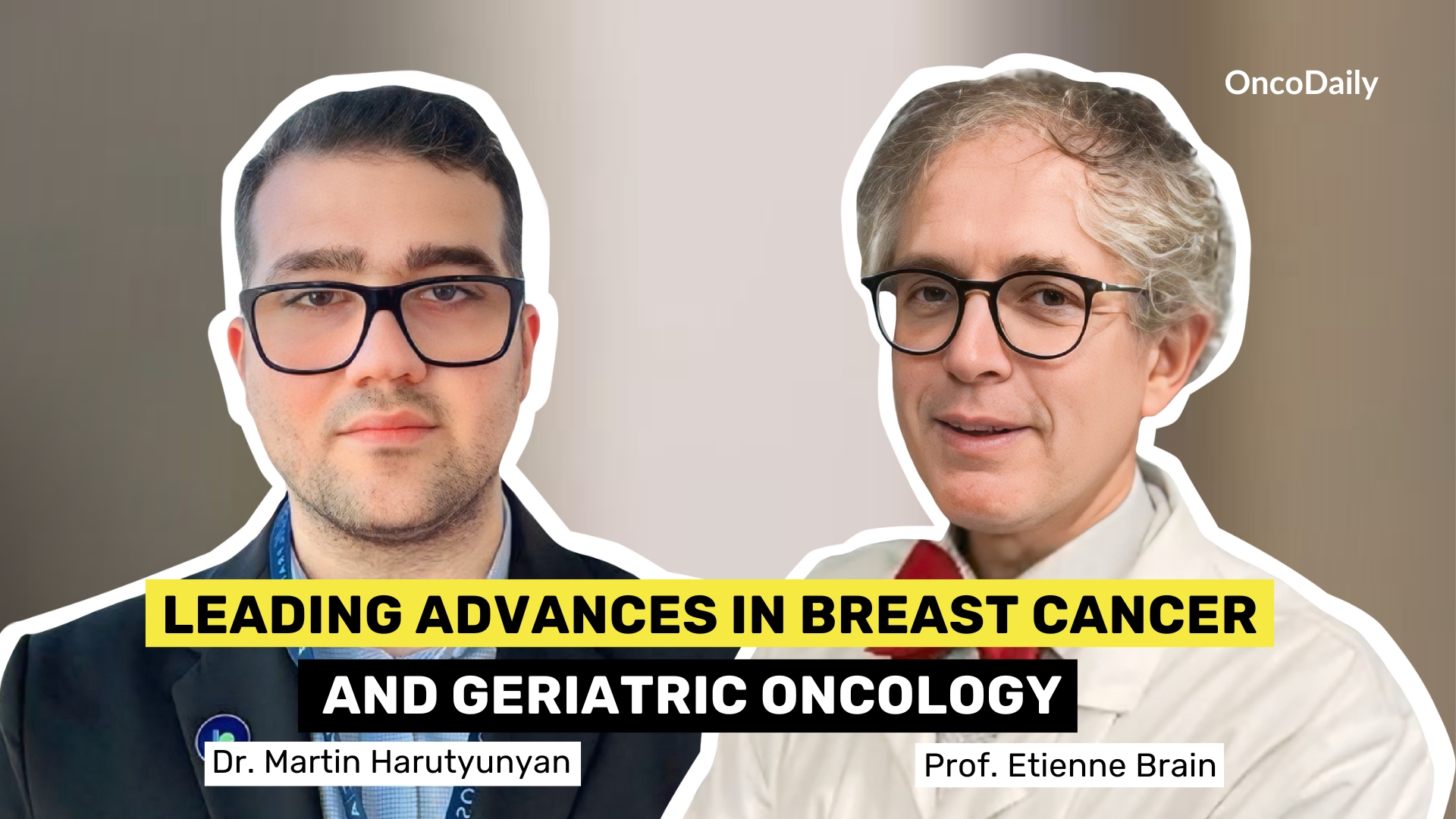In this episode of OncoDaily, Professor Etienne Brain, a leading expert from Institut Curie, joins host Martin Harutyunyan, a Medical Oncologist and Palliative Care Specialist, to explore the intersection of breast cancer and geriatric oncology.
Professor Etienne Brain sheds light on the challenges of treating older patients, the innovative efforts of EORTC, and the importance of tailored treatment approaches. As a key figure in the International Society of Geriatric Oncology (SIOG), he discusses the significance of global collaboration and education in advancing oncology care. Dive into this insightful discussion on precision medicine, immunotherapy, and the evolving landscape of cancer treatment.
Dr. Martin Harutyunyan is a medical oncologist and palliative care specialist who currently serves as the Head of the Palliative Medicine Service at Yeolyan Hematology and Oncology Center in Yerevan, Armenia. He has been working as a medical oncologist at the same center since October 2021.
Dr. Harutyunyan has made significant contributions to research and patient care throughout his career. He has worked as a clinical researcher at the “City of Smile” Charitable Foundation and as a medical coordinator at the Union of Armenian Doctors.
Dr. Harutyunyan’s played a key role in the launch of a Palliative Medicine Service at Yeolyan Hematology and Oncology Center.
00:00 Introduction
01:50 Journey into Oncology
03:05 EORTC’s Impact on Breast Cancer Care
04:41 Tailoring Cancer Care for Older Patients
07:07 Advancements in Breast Cancer Treatment
09:23 Personalized Medicine in Geriatric Oncology
11:40 Honors and Career Impact
13:26 Shaping Geriatric Oncology
15:54 Guiding Future Oncologists
17:58 Mastering Work-Life Balance
In this comprehensive interview, Martin Harutyunyan, a medical oncologist and palliative care specialist, hosts Professor Etienne Brain, a distinguished medical oncologist specializing in breast cancer and geriatric oncology. The conversation delves into Professor Brain’s career, his research, and his contributions to improving oncology care, particularly for older cancer patients.
Professor Brain begins by reflecting on his early interest in oncology, noting that around 25 years ago, he realized there was a significant gap in the literature regarding the treatment of older women with breast cancer. This realization led him to explore how older patients were represented in clinical trials, discovering that they were often underrepresented or excluded from research studies. His work has been focused on addressing this lack of robust data and helping to establish better guidelines for treating older breast cancer patients.
He explains that frailty becomes more common with aging, and after the age of 70, up to 30% of patients present with signs of frailty, which can affect treatment outcomes. He highlights that in the metastatic setting, frailty affects up to 70% of patients over 70, and in early-stage settings, it affects 40-50%. As such, treatment plans for older patients must take into account both the biological characteristics of the cancer and the frailty of the patient. Failure to do so can risk undermining the effectiveness of treatment and lead to unnecessary side effects.
Finally, the conversation touches on the challenge of balancing professional responsibilities with personal life. Professor Brain explains that finding limits and maintaining perspective is key to managing his busy schedule. He shares that music has been a vital part of his life, helping him stay energized and balanced. He is involved in several musical activities, including singing, playing the flute, and participating in the World Doctors Orchestra, which he credits with providing a creative outlet and a source of rejuvenation.
In conclusion, Professor Brain’s dedication to advancing geriatric oncology and his ongoing efforts to improve cancer care for older patients are clear. His career has been marked by a commitment to bridging knowledge gaps, advocating for inclusive research, and implementing personalized treatment strategies. The interview provides valuable insights into the evolving field of oncology, particularly in the context of aging populations, and underscores the importance of addressing the unique needs of older cancer patients.
